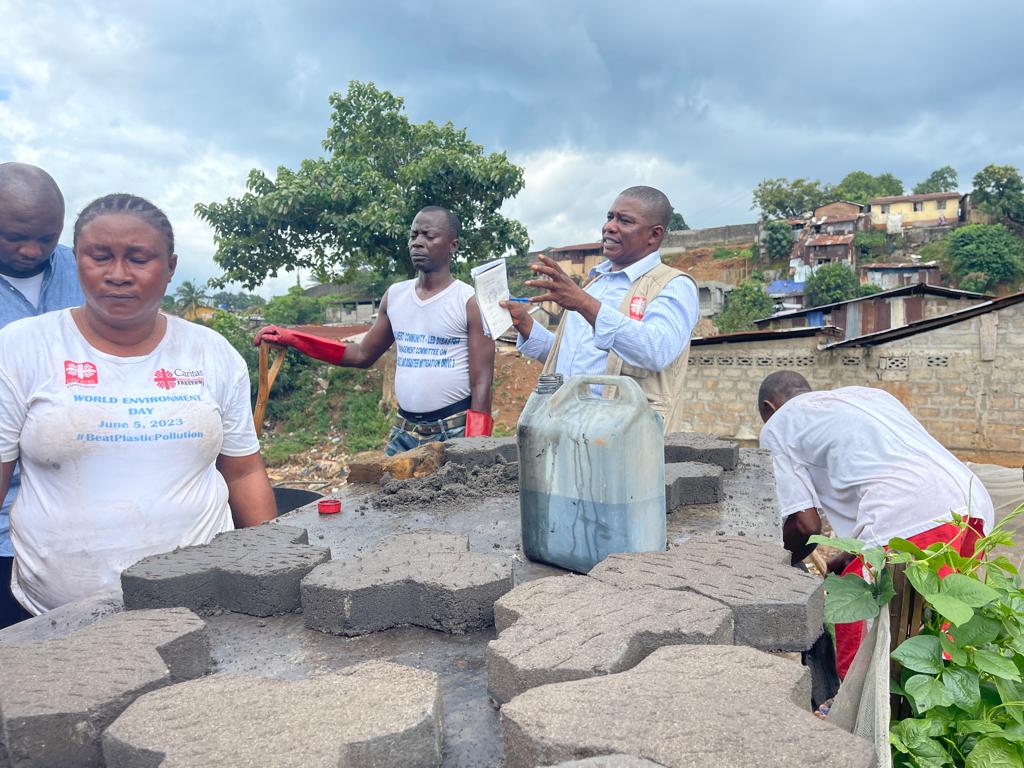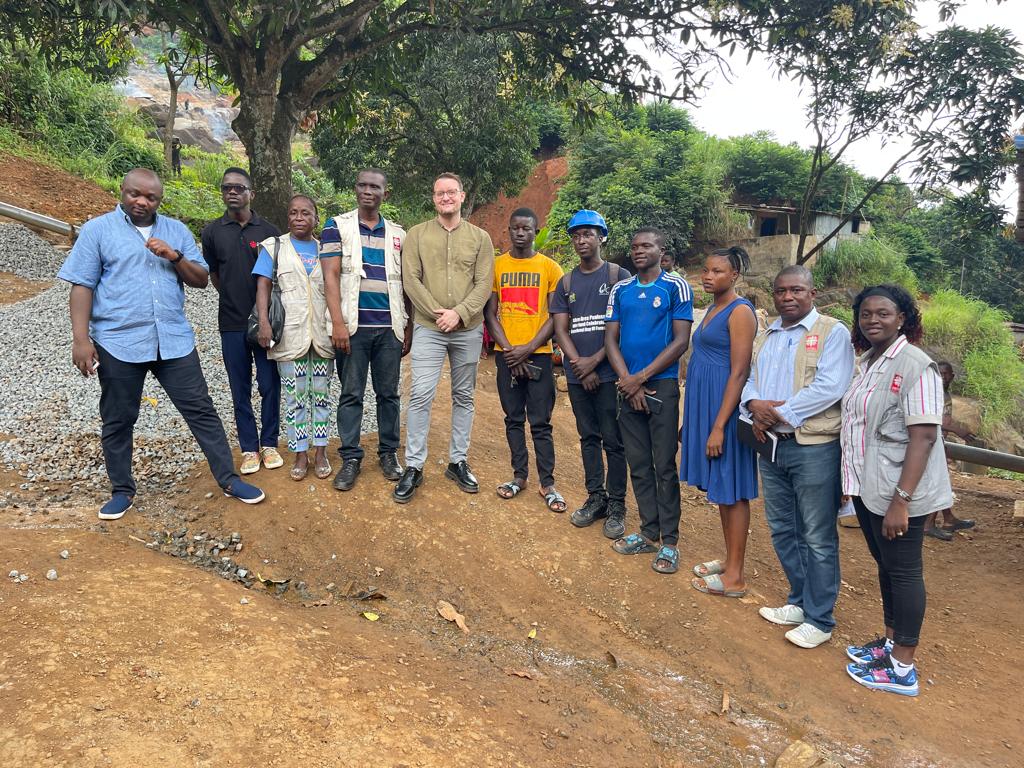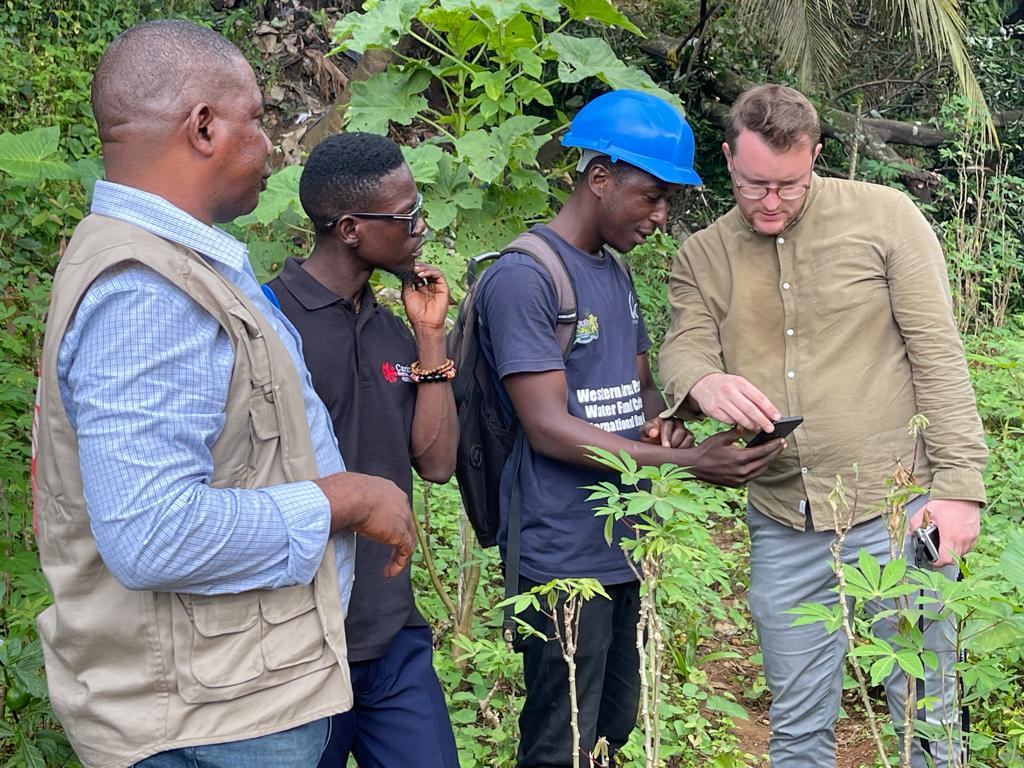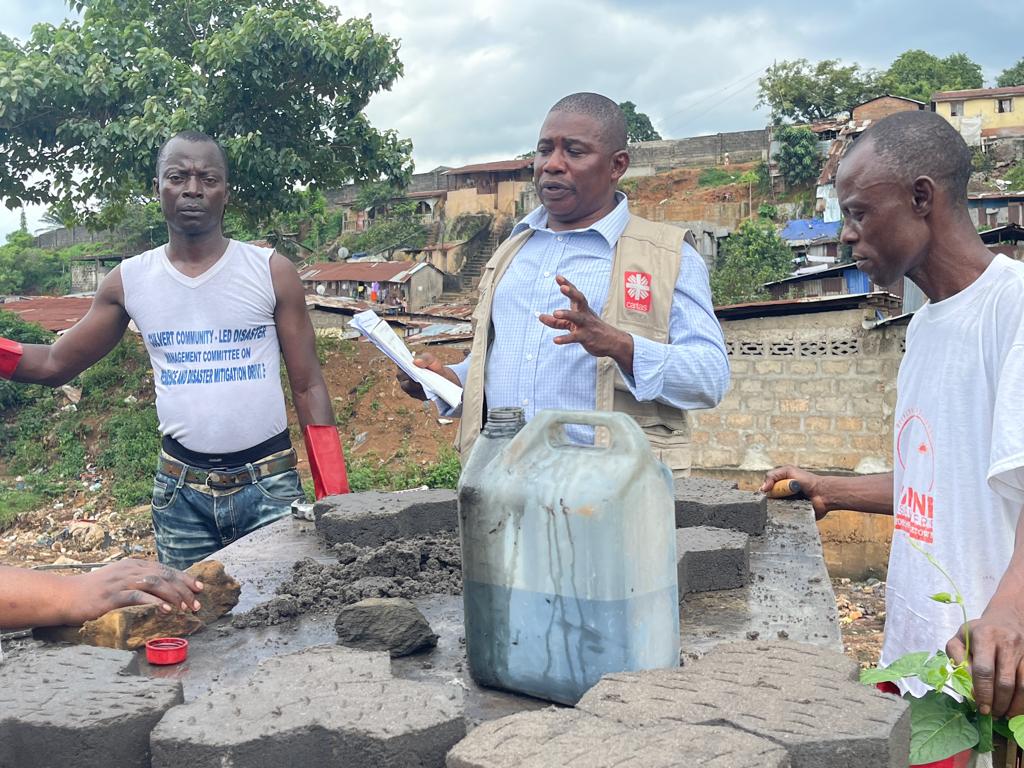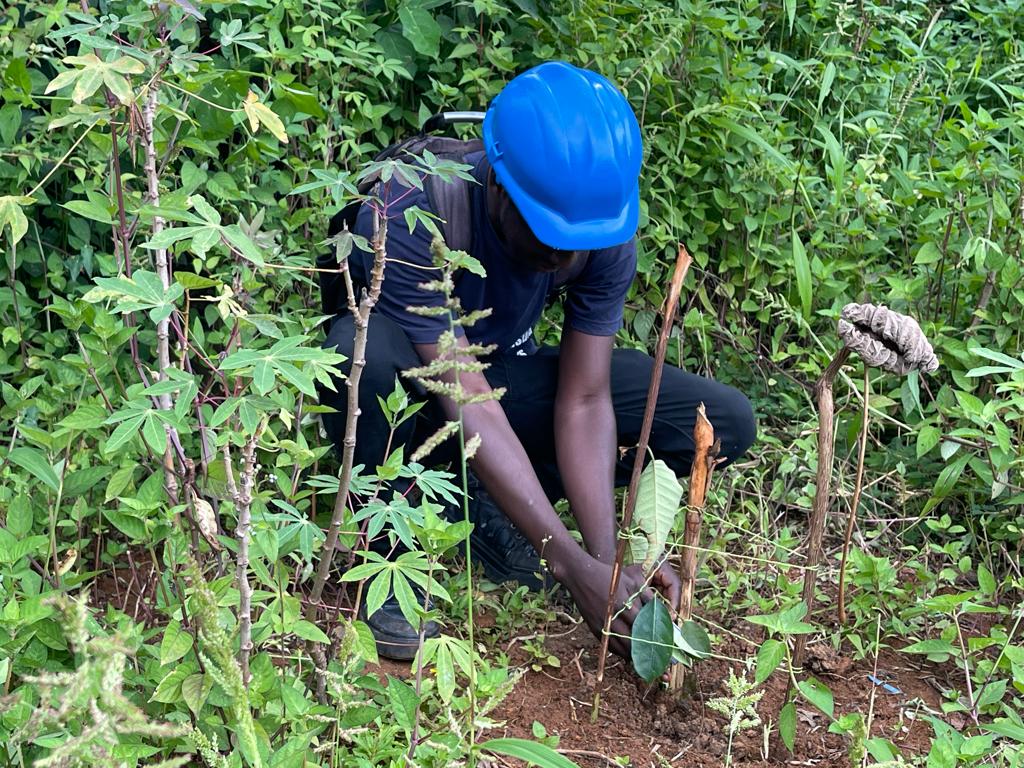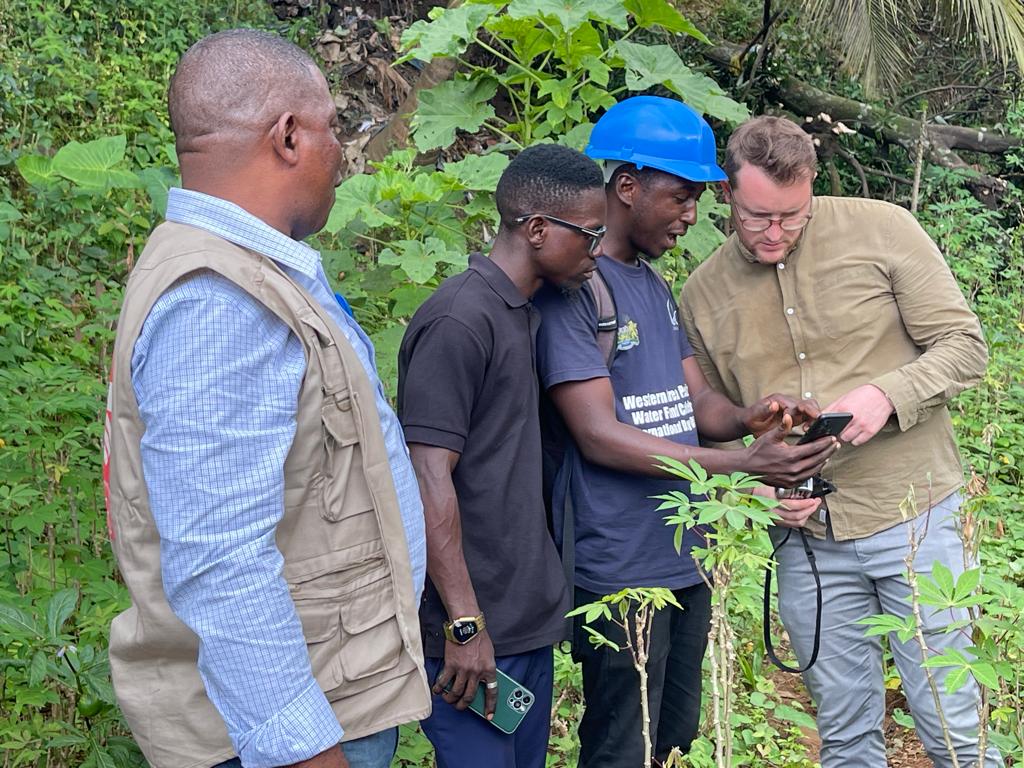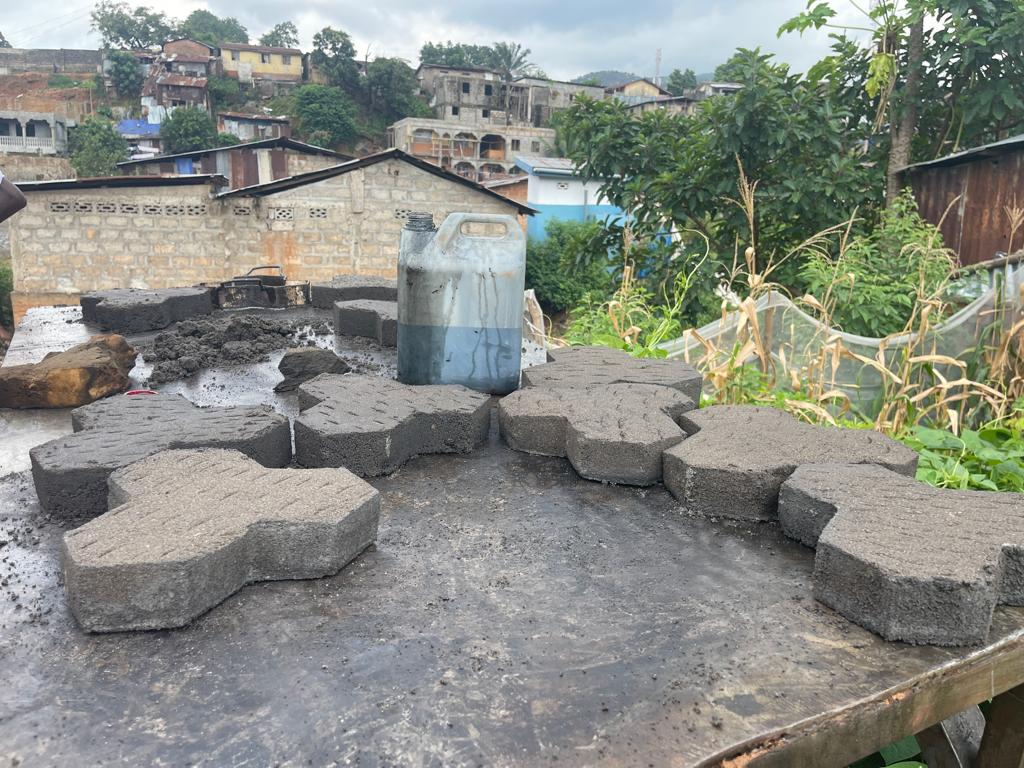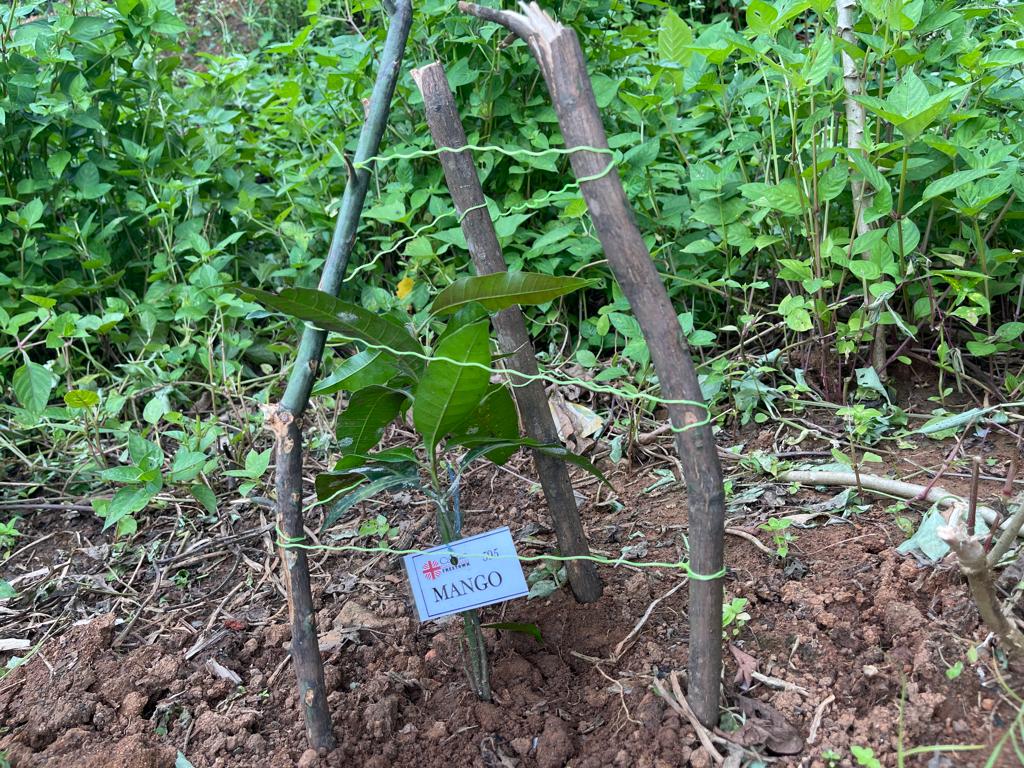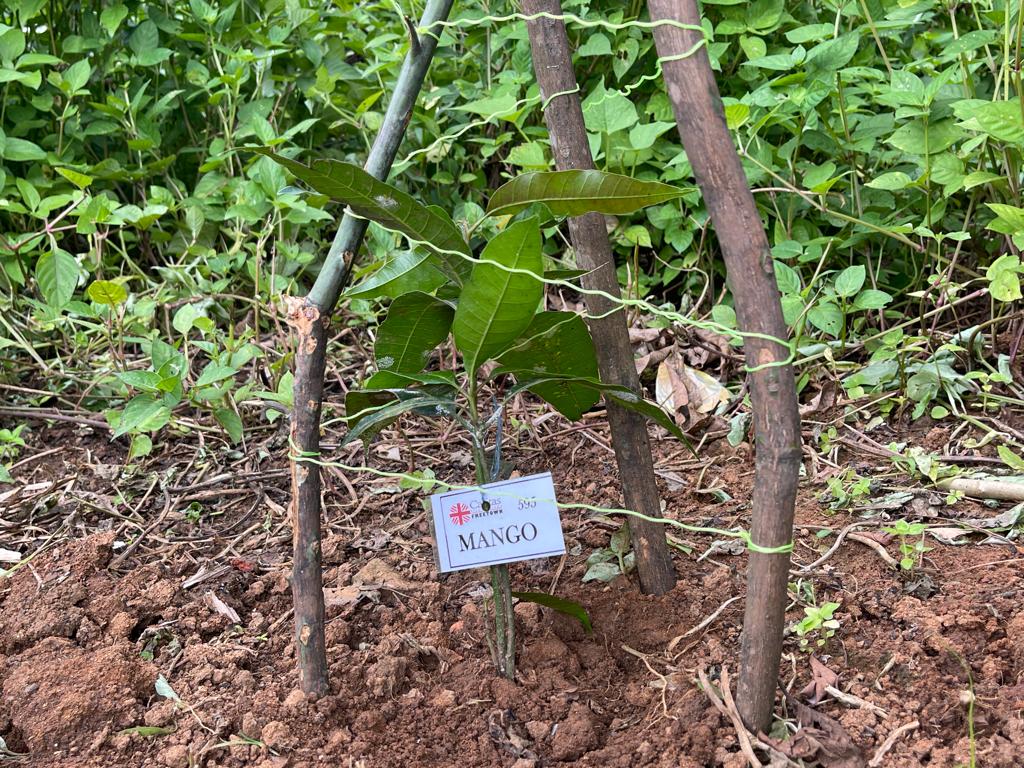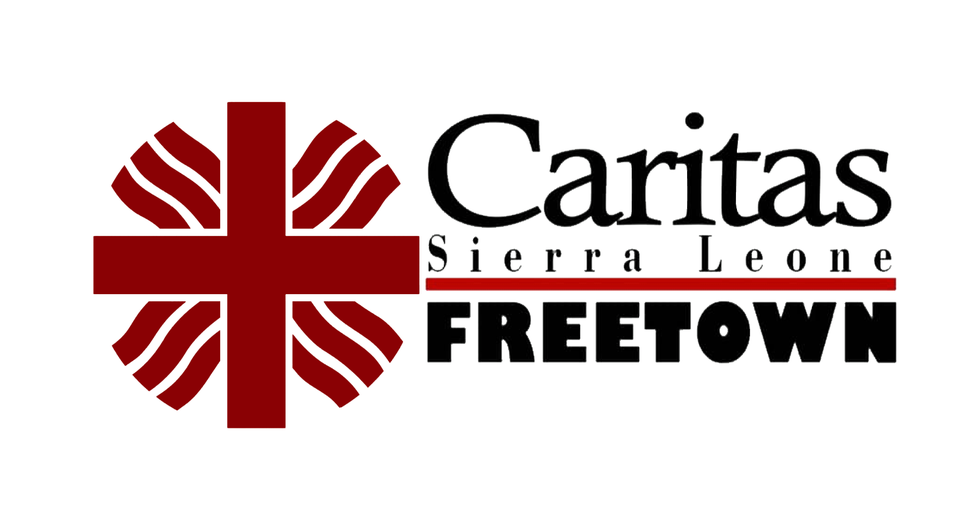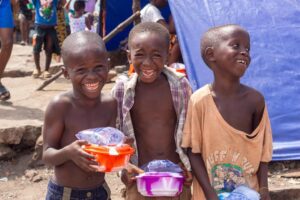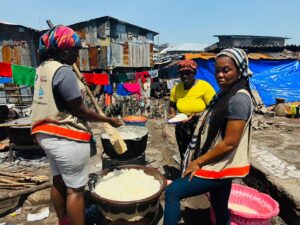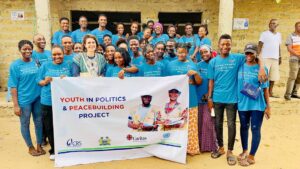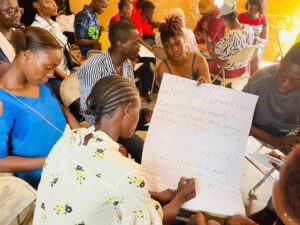“Caritas has done a great work for us. In the past, we use to ease ourselves in plastics and throw it away, but now we have toilets.” – Hawa Sesay, Financial Secretary of Culvert Community Disaster Management Committee (CDMC)
In a remarkable display of humanitarian commitment, the Caritas Freetown Disaster Risk Reduction management Project, generously funded by Caritas Germany, is bringing positive change to the lives of residents in slum, deprived, and hilltop communities in Freetown, Sierra Leone. The project’s focus lies in mitigating disasters like flooding by addressing root causes and improving sanitation in these vulnerable communities.
Representatives from Caritas Germany, alongside Caritas Freetown staff, conducted a monitoring visit on Tuesday, September 26, 2023, to Culvert and Moyiba communities. These areas have witnessed significant improvements thanks to the dedicated efforts of the Disaster Risk Reduction management Project team. The purpose of the visit was to assess the impact of these activities on the communities and ensure the sustainable maintenance of boreholes and toilets.
Supported by Caritas Germany, the Disaster Risk Reduction management Project Team has successfully constructed two boreholes and nine toilets, including three for community schools and six for the community at large in Culvert Community. Before these interventions, Culvert, a slum community prone to flooding, faced water scarcity and lacked proper toilet facilities. Children had to return home to drink water during school hours. The improper disposal of human waste, including the use of hanging toilets, contributed to unsanitary conditions and the spread of diseases.
Hawa Sesay, the Financial Secretary of the Culvert Community Disaster Management Committee (CDMC), expressed her gratitude, saying, “Caritas has done a great work for us. In the past, we used to ease ourselves in plastics and throw them away, but now we have toilets.” She also praised Caritas Freetown for distributing sanitizers in community schools, contributing significantly to community wellness. In a bid to manage plastic waste, the Disaster Risk Reduction management Project team initiated plastic recycling, turning it into floor tiles. This does not only clean up the community but also serve as a livelihood for the CDMCs who are the direct beneficiaries for this initiative and protects the environmental sanitation.
To address the root causes of flooding in slum communities like Culvert and Susan’s Bay, and combat climate change issues, tree planting initiatives were launched in both Moyiba and Leicester Communities. A survey by the team revealed that activities such as tree cutting for housing, charcoal production, and deforestation by hilltop communities exacerbated climate change and soil erosion. The Disaster Risk Reduction management Project team planted four thousand trees, including Orange, mango, avocado, tamarind, and others in both Moyiba and Leicester communities. These trees are expected to mitigate the effects of flooding and other environmental hazards faced by Culvert and Susan’s Bay communities.
Residents were elated with the tree planting efforts and acknowledged the importance of trees, especially during the dry season. One Moyiba resident stated, “The trees are beneficial to us, and we will look after them because when they bear fruit, we’ll be able to sell it and cater for our children’s education.”
This comprehensive and selfless initiative by Caritas Germany and Caritas Freetown exemplifies the profound impact humanitarian efforts can have on vulnerable communities, transforming lives and safeguarding the environment.
The project continues to be a beacon of hope for those it serves, inspiring a brighter and more sustainable future.
